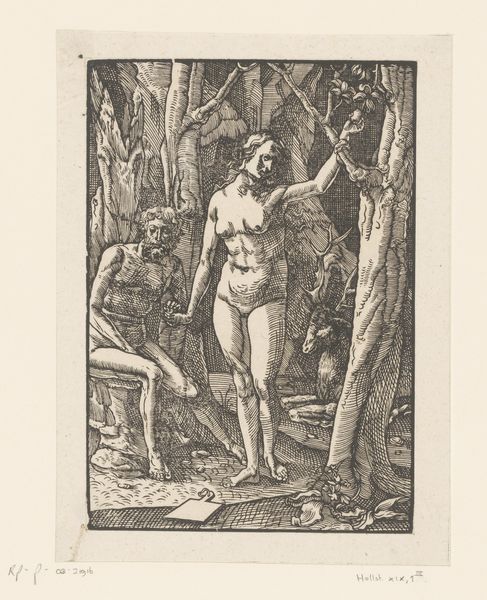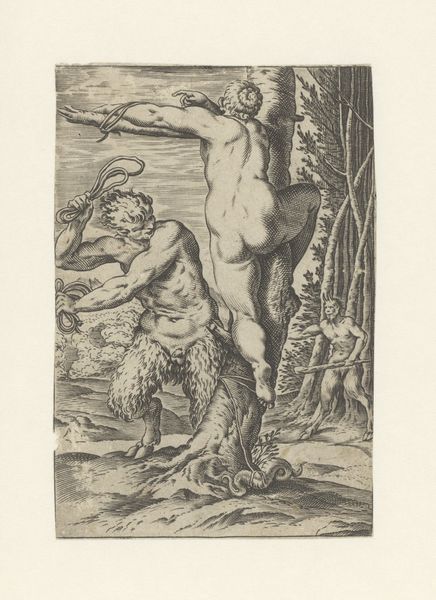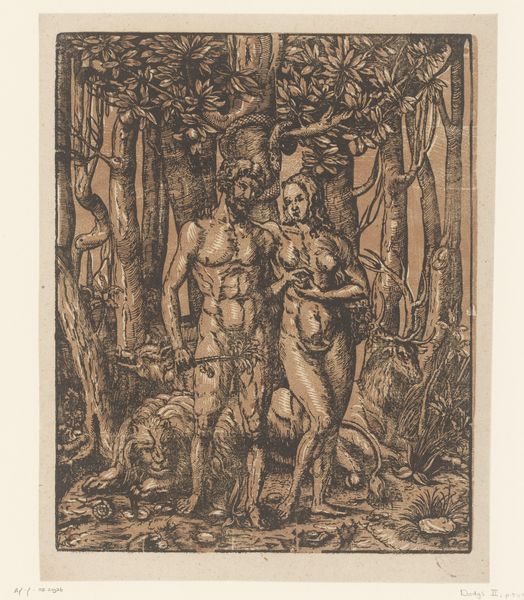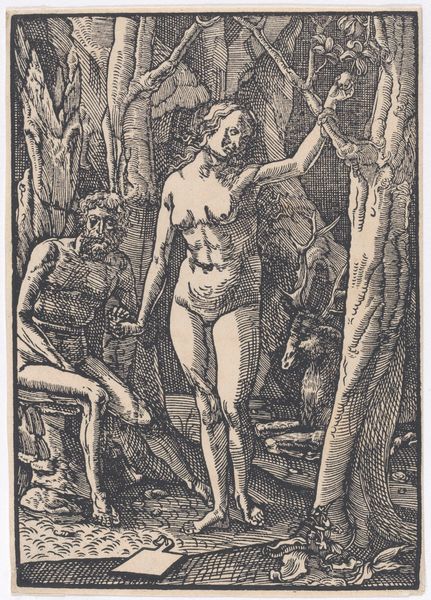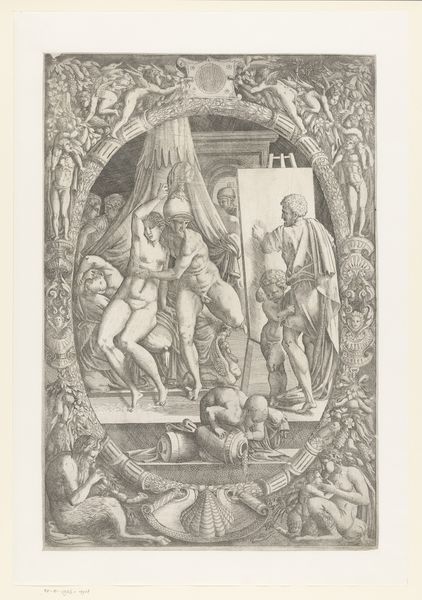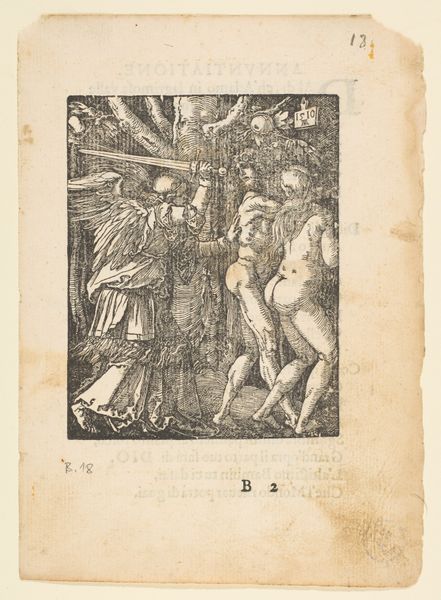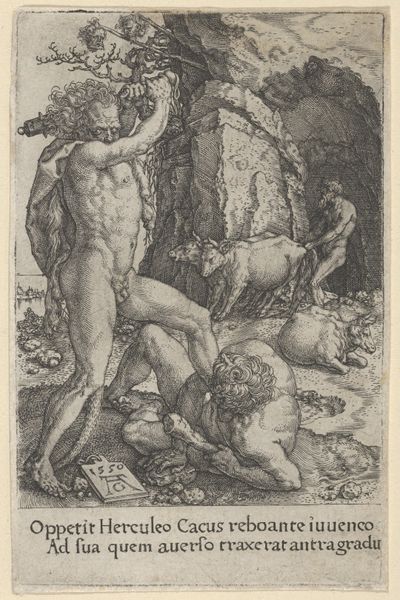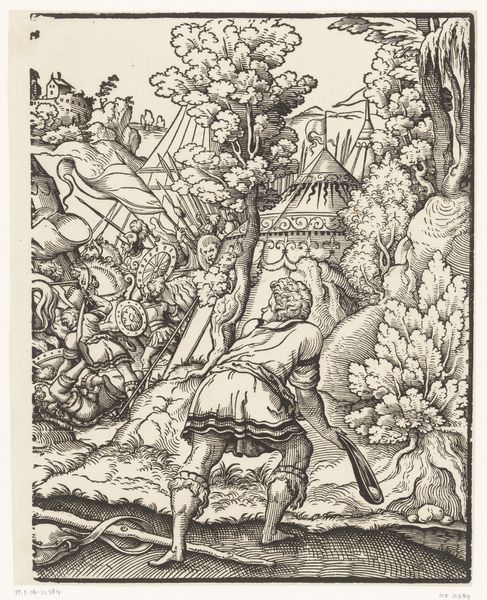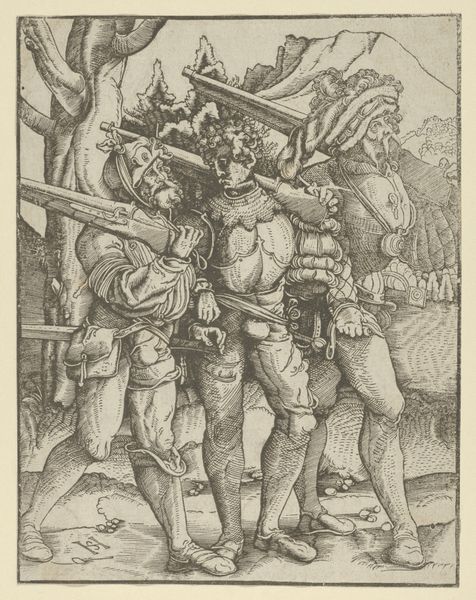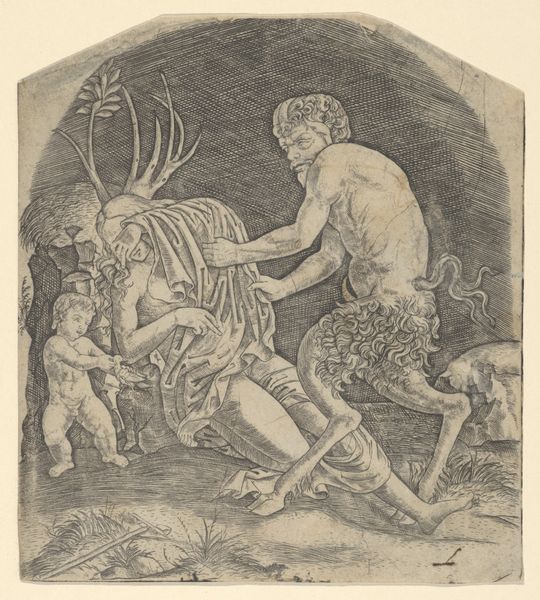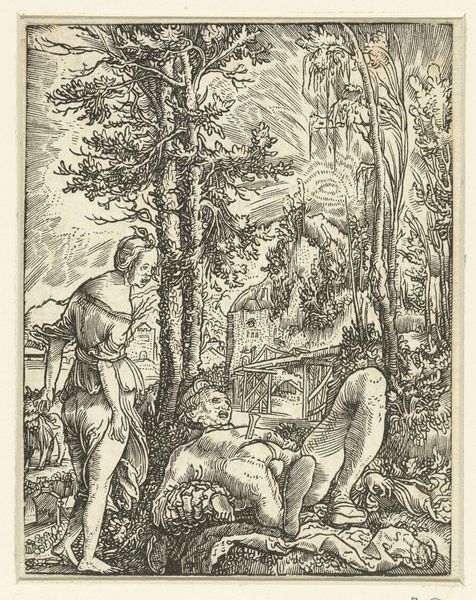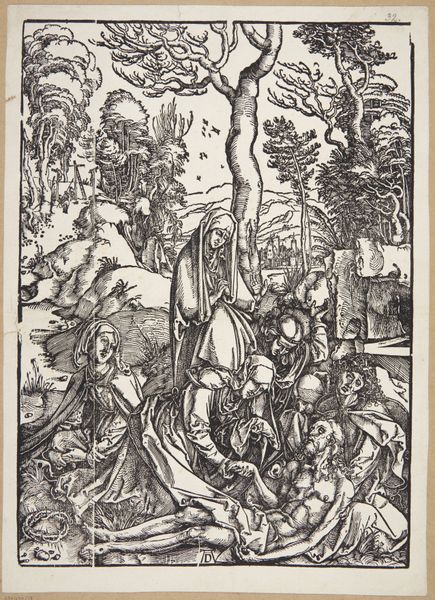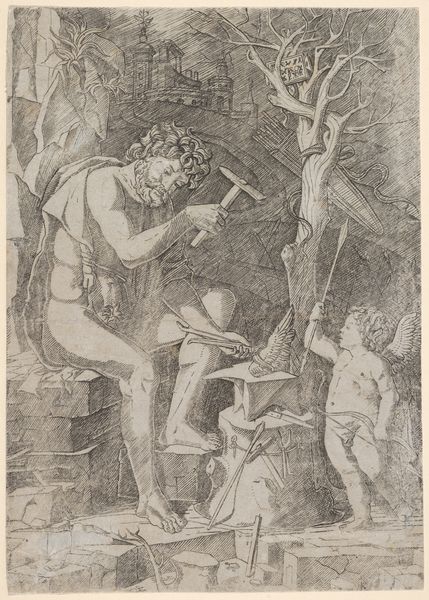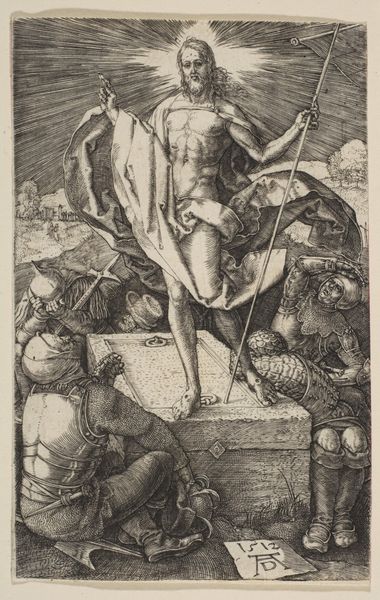
print, engraving
# print
#
old engraving style
#
figuration
#
form
#
line
#
history-painting
#
northern-renaissance
#
nude
#
engraving
#
realism
Dimensions: height 178 mm, width 124 mm
Copyright: Rijks Museum: Open Domain
Ludwig Krug created this miniature ‘Expulsion from Paradise’ in the early 16th century with a woodcut on paper. The key to understanding this image lies in the process by which it was made. The artist has used a painstaking process of carving into wood, then inking its surface, and pressing it onto paper. Each line, each shadow, is the result of deliberate cutting, requiring a high degree of skill. See how the bold black lines define the figures of Adam and Eve, contrasting with the more delicate hatching used to suggest shadow and depth? This method of production speaks to its social context. Woodcuts like these were relatively inexpensive to produce and could be widely distributed, making art accessible to a broader audience than ever before. Consider the labor involved, not just in the artist's workshop, but in the cultivation of the wood itself, the production of paper, and the distribution of the final product. In this way, Krug's print blurs the lines between craft and fine art, offering a glimpse into the material conditions of its creation and consumption.
Comments
No comments
Be the first to comment and join the conversation on the ultimate creative platform.
